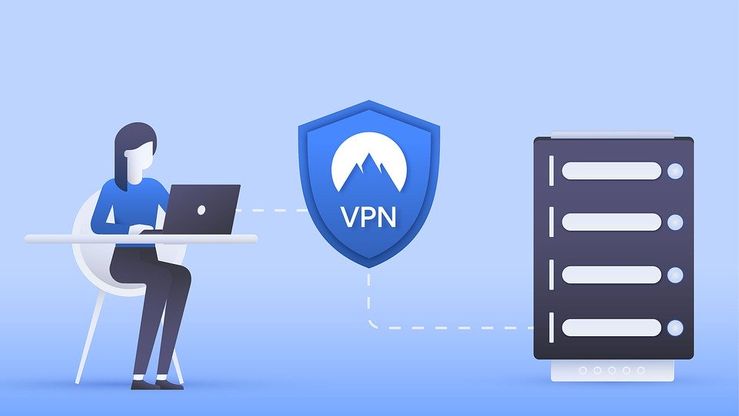Protect Yourself from Being Hacked with These 5 Steps
Technology is propelling at a breakneck pace. The Covid-19 pandemic pushed every company and individual torn between digitalization and protection to jump into the virtual world. Everything is done with a simple tap of a finger today, from shopping, learning, and communicating to payments.
Seemingly, the world has become a better and more accessible place. However, many of us do not realize that technology is a double-edged sword. While people are working hard for the greater good, there are those out there who seek nothing but financial gain. And to achieve this goal, they cross all limits of maliciousness.
However, before we find the solution to the problem, it would be wiser to understand what hacking is and how it is done.
Hacking and its most common techniques
According to Malwarebytes, hacking is the act of exploitation of a digital device such as a computer, smartphone, tablet, or even a whole network. Popular hacking tools include worms, rootkits, viruses, trojans, ransomware, and botnets.
Nonetheless, it takes a far greater effort to break a security system than to make it. Hence, never underestimate the harm a hacker can cause you or your workspace. As per Mitnicksecurity, the most common methods cybercriminals use in 2021 include:
- Social engineering – This is when a hacker phishes for your personal information with an illicit intention. It can either be done through phishing emails or texts that seem to have come from a trusted source such as a friend, relative, bank, or a renowned company. Their aim is to lure you into sharing your sensitive information like bank or credit card details.
- The exploitation of outdated software – We usually ignore the update notifications coming from our antivirus software. However, not many of us are aware that missing patches in applications like Microsoft and WordPress can also be exploited by cybercriminals.
- Infected devices – In this case, the hacker hands over a malware-infected device such as a USB stick to you. And immediately you plug the device into your computer or smartphone, the hacker gets remote access to your data.
- Keylogging and spyware – Through social engineering, hackers may tempt you into downloading hidden spyware that notes your keystrokes. Hence, hackers obtain a record of your usernames and passwords.
Nonetheless, there is a wide misconception that cybercrime is a rare thing, but a report by the Federal Trade Commission states otherwise. It reveals that in 2020 alone, there were 4.8M reported identity theft cases which were 45% more than those in 2019. So, where does this leave us?
The solution rests in the problem itself. According to Cybint, 95% of data breaches are caused due to human error. And this article aims to equip you with enough information to avoid such mistakes.
5 steps to prevent a hack attack
Avoid downloading unnecessary apps, files or clicking on suspicious links
There are always those fake chain messages claiming to be offering a free meal from a renowned restaurant like KFC on WhatsApp. All they ask from you is just to click on the link. Do you ever remember receiving a meal voucher even after you have reshared the link to 10 groups as per the landing website’s request? You might not even be aware that clicking on that link may have downloaded malware into your phone.
A similar situation may occur at your workplace as well. An individual claiming to be your company’s client may ask you to download a specific file and help them fix a seemingly urgent issue. Think several times before doing what the stranger says because a slight wrong move may compromise your personal and work data.
First, ensure that the person is exactly who they claim to be. You can use Nuwber to verify the details they have provided you. Simply enter the name of the person, press search, and scrutinize the data that comes up.
Avoid sharing personal data
No matter how close a friend or a relative is, never entrust them with the most sensitive information such as credit card pins or passwords. While most of your acquaintances might not intentionally harm you, a slight mishandling of data may put you in deep trouble. Moreover, limit the amount of information you share on social media as hackers are always looking for what is important to you. They know that your password will probably contain the date of the important event you shared on Facebook.
Do not use public Wifi to access sensitive information
This might seem like a very obvious step, yet many of us carelessly check our bank account details or make online purchases using public Wi-Fi. These connections are insecure, and cybercriminals can easily steal your information from such networks. Therefore, no matter how urgent or tempting the need may be, never open your bank account while using public Wifi.
Make use of two-step authentication
To be on the safe side and make it harder for hackers to access your data, use a two-step verification process on all your sensitive data such as bank accounts and credit cards. So that even if the hacker cracks your password, they will not be able to get the security code sent on your SIM card. You will get a notification of a login attempt and will be able to take the necessary steps on time.
Use Antimalware & Firewalls and update your software
Lastly, never underestimate what a firewall or antivirus can do for you. They are there for a purpose, and you should at least have a free version installed on all your digital devices. Also, remember to update them on a timely basis to avoid leaving security loopholes for virtually nearby lurking criminals. Similarly, do not ignore Windows or any application update notification. Missing patches in these may also give hackers unauthorized access to the device.
As technology progresses, so do the ways of committing sophisticated crimes. Wise men advise that prevention is better than cure. So instead of crying over spilled milk later, it is better to be precautious formerly.

Hello! My name is Lucas, and I am the creator of ursuperb.com. I’ve been writing about technology for almost 10 years now, and I love talking about tech news, reviews, and tutorials. I’m currently living in San Francisco, CA, and I’ve been blogging professionally since 2012. I love what I do, and I really enjoy interacting with people online. I believe in creating positive change for humanity, and I try to inspire others to do the same. You can read more about me here.
My favorite thing about Ursuperb is that I’m able to provide useful information to anyone interested in learning more about technology. No matter what kind of tech you use (computer, smartphone, tablet), you will definitely find something interesting to read on Ursuperb. So, let’s take a look at some of the topics I cover on Ursuperb:
1) How To Build An Online Business With WordPress
2) How To Make Money On YouTube Using AdSense
3) What Is Google Analytics? And Why Should You Use It?
4) How To Make Your Own Website Design Software For Free





